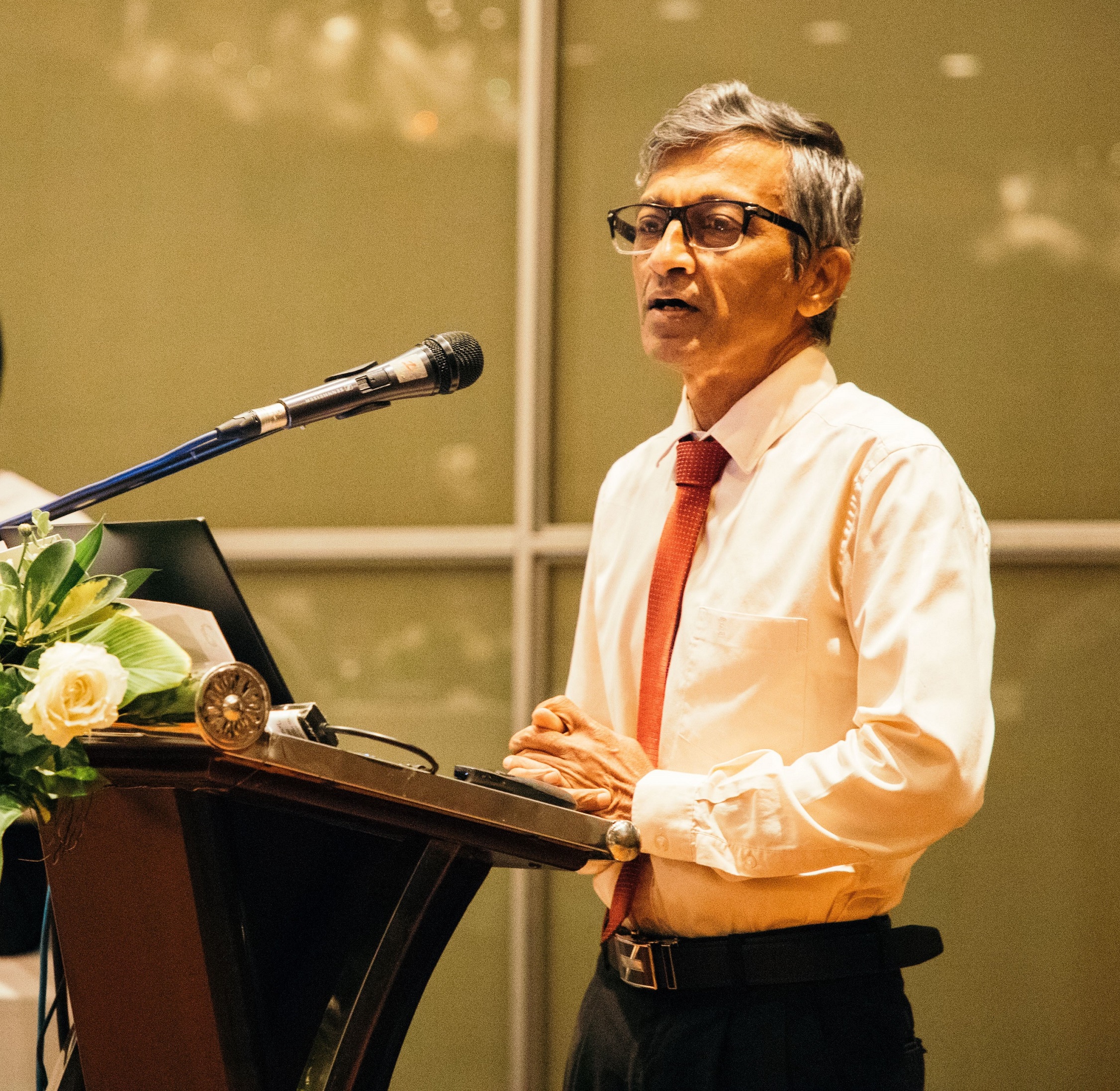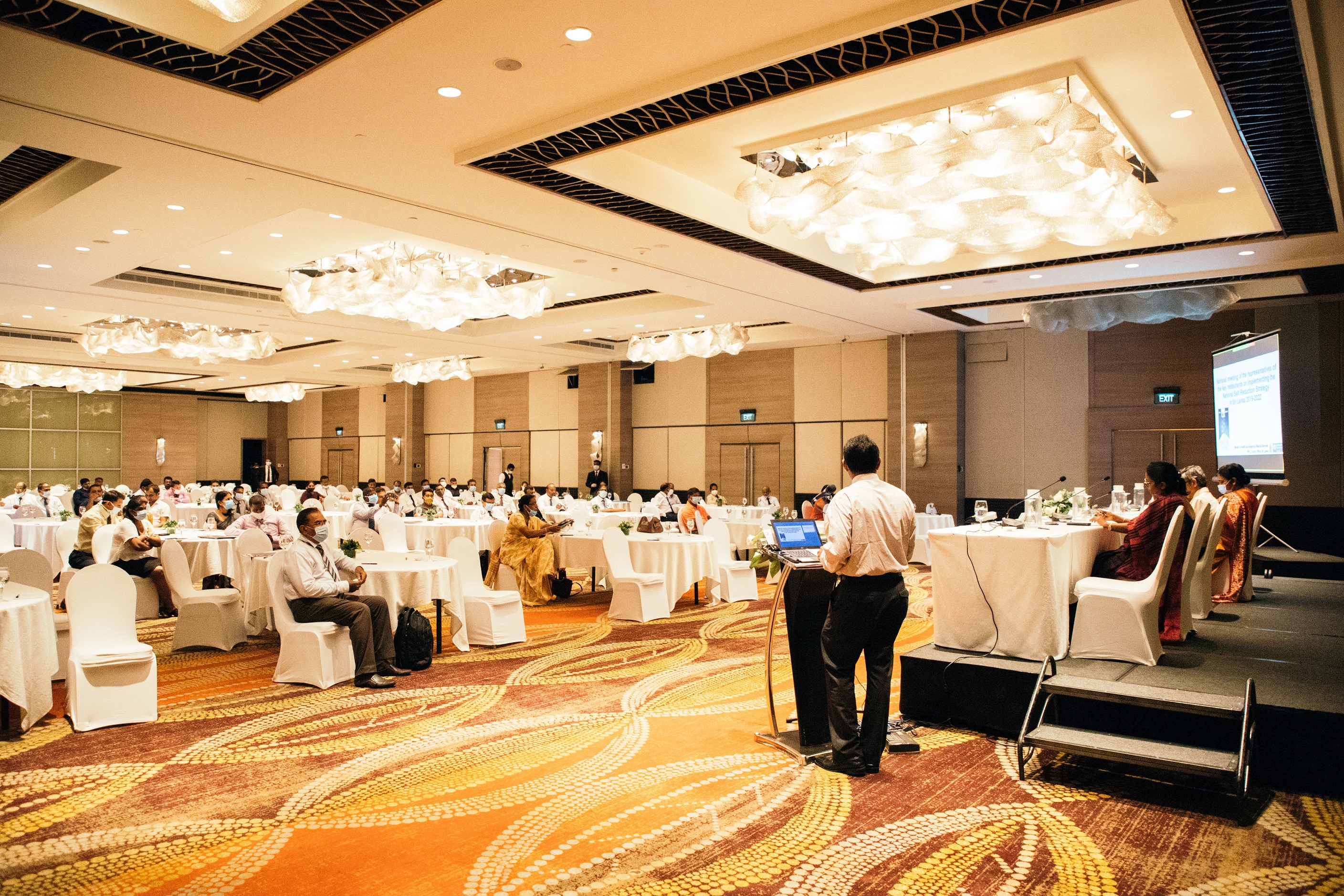More than 25% of Sri Lankan adults have hypertension, which increases one’s risk for coronary heart disease, stroke, and heart failure. High salt intake is associated with increased risk of developing hypertension; however, national surveys estimate that most Sri Lankans consume more than the recommended 5 g/day. To address this pressing issue, the Ministry of Health, WHO Sri Lanka, and other key stakeholders developed the National Salt Reduction Strategy in Sri Lanka 2018-2022, a comprehensive plan to reduce salt consumption in Sri Lanka.
A crucial component of the strategy is convening stakeholders to discuss the implementation of the plan in a staged manner. One of the first meetings, the National meeting of the representatives of the key restaurants on implementing the National Salt Reduction Strategy in Sri Lanka 2018-2022, was hosted by the Ministry of Health and WHO Sri Lanka on 21 July 2020.
Dr. Achala Jayathilake, Consultant, WHO Sri Lanka, started the meeting by welcoming attendees, including

representatives of key chain restaurants, members of the Technical Working Group on LINK grant activities, representatives from WHO Sri Lanka, Food and Drug Inspectors, and officials from the Ministry of Health, including representatives from the directorate of Environmental Health, Occupational Health, and Food Safety and the Noncommunicable Diseases unit. Key chain restaurants, defined as restaurants that maintain more than three outlets in one or more districts in Sri Lanka, were invited; participants included: Pizzahut, McDonald’s, Dominos, KFC, Burgerking, Royal Mall, Kandy, Hangout, Remarco, Calton, People’s Bakers, Don and Sons, Caravan, and Fab. All of these restaurants have more than 20 outlets in operation throughout the country.

Dr Nalika Gunawardena, National Professional Officer, WHO Sri Lanka, set the stage by presenting the global evidence on the importance of harnessing the food industry’s influence in efforts to reduce the public’s salt consumption. Followed by a presentation from Dr Lakshman Gamlath, Director-General of Environmental Health, Occupational Health, and Food Safety Directorate, who introduced the National Salt Reduction Strategy in Sri Lanka 2018-2022 and presented the proposed plans to measure the salt content of commonly sold food items in selected key chain restaurants. Once high-salt content food items are identified, technical assistance to reformulate these items to low-salt content will be provided. The measures, methods, and timeline for reformulation will be determined in a second consultation.
The meeting concluded with a panel discussion on the main issues envisaged by key restaurant owners and possible solutions. The discussion confirmed that all of the key restaurants were willing to support the proposed strategy to reduce salt consumption in Sri Lanka. As 60% of Sri Lankan adults and adolescents are unaware of salt intake recommendations, and the average salt consumption is double the recommended amount, prompt action from key restaurants and responsible stakeholders is vital to improving the nation’s health and wellbeing.

